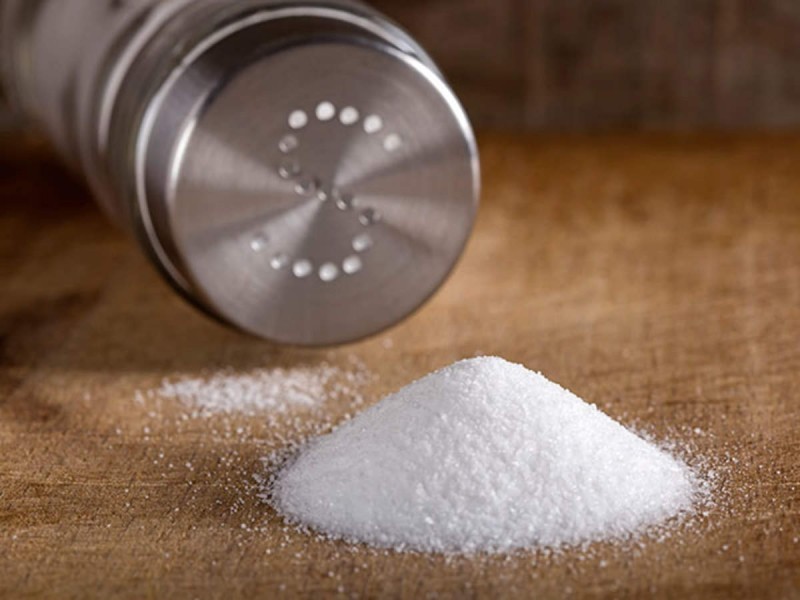
Excessive salt consumption is more than just a culinary concern; it's a health hazard lurking in plain sight. While salt enhances flavor and preserves food, its overconsumption poses significant health risks. The World Health Organization recommends consuming less than 5 grams of salt per day, yet the average global intake far exceeds this threshold. From processed foods to restaurant meals, salt infiltrates our diets, often unnoticed but with devastating consequences for our health.
Salt: A Double-Edged Sword
Salt, chemically known as sodium chloride, plays a vital role in bodily functions, including nerve transmission and muscle contraction. However, like many essential nutrients, moderation is key. While salt is necessary for health, too much of it can wreak havoc on the body. The problem lies not only in the salt shaker on our kitchen tables but also in the hidden sources of salt found in processed and restaurant foods.
The Toll on Health
Cardiovascular Complications: High salt intake is a leading contributor to hypertension, a condition characterized by elevated blood pressure. Hypertension, in turn, increases the risk of heart disease and stroke, two of the leading causes of death worldwide. Excess salt consumption contributes to the development and progression of hypertension by causing the body to retain water, thereby increasing blood volume and pressure on the arterial walls.
Renal Risks: The kidneys play a crucial role in maintaining electrolyte balance, including sodium levels in the body. Excessive salt intake places undue strain on the kidneys, leading to impaired function over time. Chronic kidney disease (CKD) is a common consequence of prolonged salt excess, as the kidneys struggle to excrete the excess sodium, leading to fluid retention and further increases in blood pressure.
Metabolic Mayhem: Salt imbalance can disrupt metabolic processes, exacerbating conditions like diabetes and obesity. High salt intake has been linked to insulin resistance, a precursor to type 2 diabetes, as well as increased fat accumulation, particularly around the abdomen. Furthermore, excessive salt consumption may alter hormone levels involved in appetite regulation, leading to overeating and weight gain.
Unveiling the Myths
"I Can't Taste the Salt": Despite its subtle flavor, excessive salt hides in processed foods, restaurant meals, and snacks. Many individuals underestimate their salt intake because they cannot taste it directly, especially in dishes where salt is used as a flavor enhancer rather than a primary seasoning.
"Salt is Innocent": Contrary to popular belief, not all salt is created equal; some varieties contain harmful additives like iodine or anti-caking agents. While iodized salt has helped combat iodine deficiency disorders in many parts of the world, it may also contribute to excess iodine intake in populations with sufficient iodine levels.
The Culprit in Disguise
Processed Foods: From canned soups to frozen dinners, processed foods are notorious for their high salt content, often surpassing recommended daily limits in a single serving. Food manufacturers use salt not only for flavor but also for its preservative properties, extending shelf life and enhancing texture.
Restaurant Fare: Dining out often means unwittingly ingesting excess salt, as restaurants prioritize taste and preservation over health concerns. Restaurant meals, particularly fast food and casual dining options, tend to be high in salt, fat, and calories, contributing to poor dietary habits and adverse health outcomes.
Navigating the Salty Seas
Read Labels: Scrutinize food labels for sodium content and opt for low-sodium or salt-free alternatives. When shopping for groceries, compare similar products and choose those with the lowest salt content per serving. Be wary of hidden sources of salt, such as monosodium glutamate (MSG) and sodium nitrate, which are commonly used as flavor enhancers and preservatives.
Cook from Scratch: Embrace home cooking to control salt levels and savor the true flavors of fresh ingredients. When preparing meals at home, use herbs, spices, and citrus to enhance flavor without relying on salt. Experiment with different seasoning blends and cooking techniques to create delicious dishes that are low in salt but bursting with flavor.
Spice it Up: Experiment with herbs, spices, and citrus to enhance flavor without relying on salt. Fresh or dried herbs like basil, thyme, and rosemary add depth and complexity to dishes without the need for extra salt. Citrus fruits such as lemon, lime, and orange can brighten flavors and balance savory dishes, reducing the need for added salt.
A Call to Action
Public Awareness: Educate communities about the dangers of excessive salt consumption through public health campaigns and educational initiatives. Raise awareness about hidden sources of salt and empower individuals to make informed food choices that promote heart health and overall well-being.
Regulatory Measures: Advocate for stricter regulations on salt content in processed foods and restaurant menus to protect consumer health. Support initiatives to reformulate products with lower salt levels without compromising taste or quality. Encourage food manufacturers and restaurant chains to prioritize health and sustainability in their product offerings.
Excessive salt consumption is a silent killer, claiming lives through its insidious effects on cardiovascular and metabolic health. By raising awareness, making informed food choices, and advocating for change, we can stem the tide of this preventable epidemic. Let's salt wisely, savoring the flavor of life without sacrificing our health in the process.
BMW brings electric car worth Rs 1.19 crore, will give range of 516 kilometers
What is the use of airbags, is it really difficult to identify real and fake?